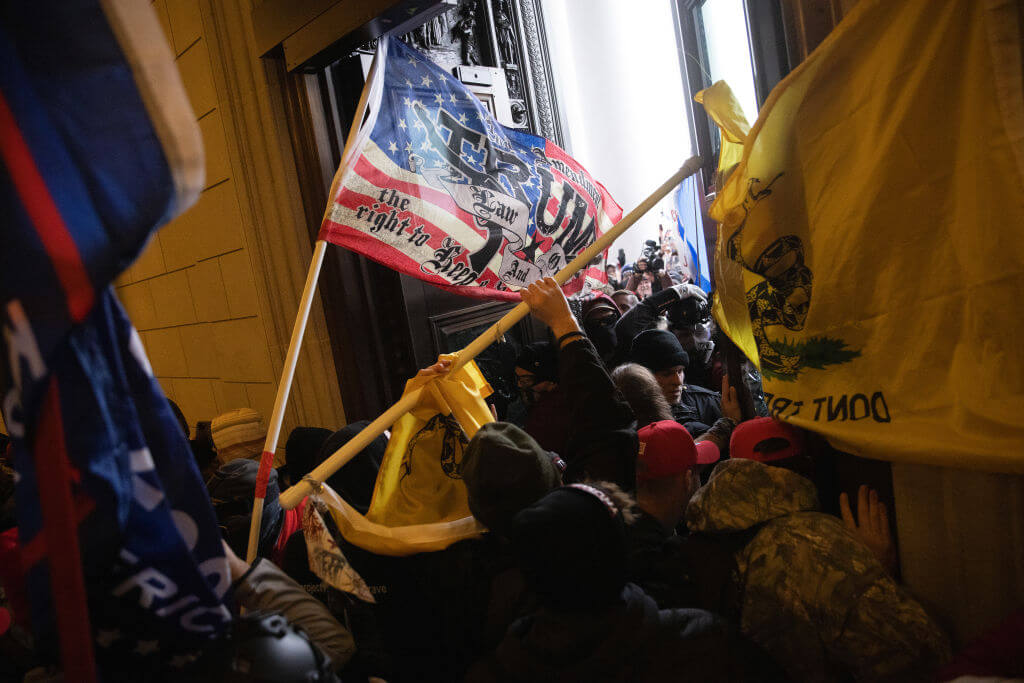Opinion: Insurrection Is Latin for ‘Uprising.’ Maybe It’s Time to Abandon the Combat Metaphors in Our Politics

Let’s get the false equivalency out of the way: ZERO police officers were killed across scores of Black Lives Matter and police reform protests from the summer of 2014 to now. We can’t say the same about demonstrations by President Trump’s supporters.
But if we are horrified by what we saw at the U.S. Capitol on Jan. 6, then we should also be able to admit that the attack on the Capitol is what an “uprising” actually looks like. The attack on the Capitol is what a “political revolution” actually looks like. The attack on the Capitol is what “no
justice, no peace” actually looks like.
The attack on the Capitol is generally being described as an “insurrection.” Insurrection is a Latin word that means “uprising.” The original Latin term is insurrectio. We add an ‘n’ at the end to make the word conform to our syntactical expectations, but it is the same word. Yet many who oppose Trumpist violence once embraced the language of “uprising” in the wake of riots that occurred during police protests in previous years in places like Baltimore, and political figures like U.S. Sen. Bernie Sanders have built brands around calling for “political revolution,” embracing the vocabulary of violence to describe political action.
In the wake of the 2011 shooting of U.S. Rep. Gabrielle Giffords, many decried the way national Republican political figures like Sarah Palin used violent imagery in their political discourse, such as referring to the need to “target” politicians. The argument was that such language by
Republican politicians activated those elements who were inclined to violent political behavior on the right. But it is more accurate to say, I think, that such language activates those who are inclined to violent political behavior, full stop, regardless of where their politics lean.
This sort of language is not necessary for political discourse. We don’t have to “fight like hell” for everything in our politics. We can debate like hell, or argue like hell, or press our case like hell and not devolve into combat metaphors to describe discussions that are ultimately about things like highway maintenance and investment.
Saying we’re going to “press our case” like hell may not be as sexy as saying we’re going to “fight” for what we believe in, but if we’re truly shocked by what happened at the Capitol on Jan. 6, then we do not actually believe that “fighting” for something is an appropriate political action. Our political language and discourse should begin to reflect that.
— ROBERTO E. ALEJANDRO
The writer practices law in Maryland and holds a PhD in religion and theology. He is the author of “The Crucifixion and Resurrection of Freddie Gray” (Lexington Books).




 Creative Commons Attribution
Creative Commons Attribution